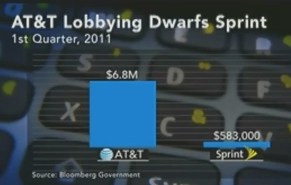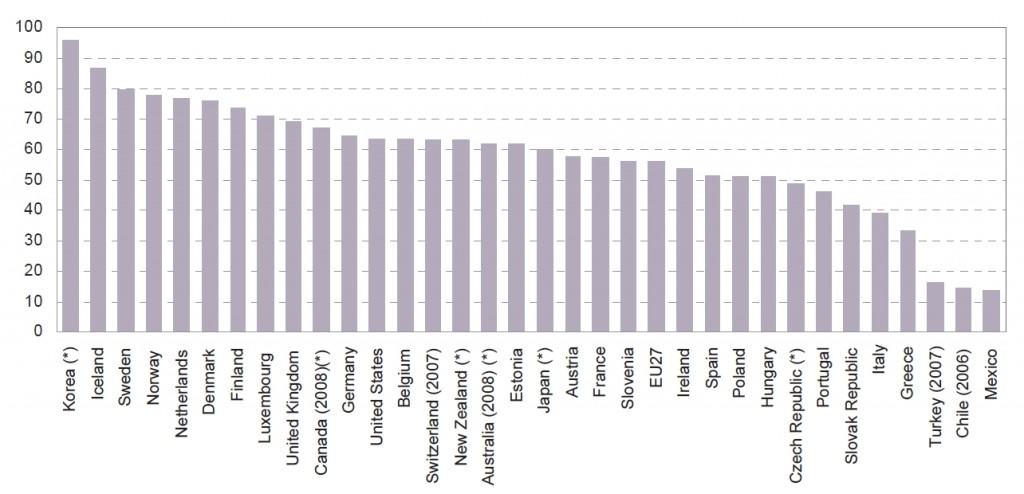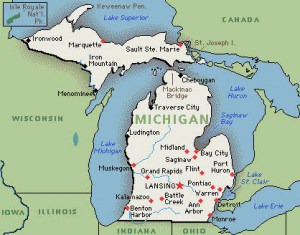
Stop the Cap! reader Cal believes AT&T cannot be reasoned with about Internet Overcharging until you threaten to cancel.
While a significant number of customers have already pulled the plug on AT&T DSL and U-verse service over their recently-introduced Internet Overcharging schemes, some are telling Stop the Cap! they have no plans to actually disconnect service until AT&T threatens to charge them overlimit fees.
For some AT&T customers, there is no suitable alternative to the phone company. Rural customers without a cable provider, or those who are faced with two bad choices — AT&T or Charter Communications — say they are going to test AT&T’s resolve to actually overbill them.
Cal is an AT&T customer is Missouri. His alternative? Charter Cable, which has an Internet Overcharging scheme of its own and delivers what he calls “third world service” in his community. Given a choice, he intends to stay with AT&T as long as possible, pulling the plug only after his third warning of exceeding the phone company’s new broadband usage limits. He thinks AT&T’s customer service won’t ultimately let it come to that.
“My sister works for an AT&T call center where she lives, and there was some training on the subject of handling the company’s usage caps,” Cal reports. “Get the right representative or supervisor and they can make virtually anything go away with a few keystrokes, especially if you are prepared to cancel your service over the issue. While they may not cancel the caps, they very well may credit back any overcharges.”
Cal says his family does not intend to change their usage habits one bit. He’ll change providers before he rations his Internet usage.
“I maintain control over our Internet access here, they don’t and sure as hell won’t,” he said. “We do not do illegal downloads and we don’t allow torrenting or anything else that can get my kids into trouble, but we do use a Roku box and watch Netflix instead of buying pay movie channels with programming not suitable for my family to watch.”
Cal says his five children are home-schooled, which makes daily Internet access an essential part of the education process. Many companies that provide home-schooling materials increasingly require a broadband connection. While not as bandwidth hungry as Netflix video streaming, with five children in the home, usage adds up fast.
“It is not hard to do 260GB of usage a month, which puts us just over their U-verse limit, and I’ll be damned if I am going to pay AT&T another $10 for 10GB over,” Cal says. “This is another reason why the Obama Administration is no better than the last one — they are all masters of big corporations who will rob us blind and use the money to pay off Congress to look the other way.”
 Cal used to be a Charter Cable customer, but left when that company implemented its own Internet Overcharging scheme.
Cal used to be a Charter Cable customer, but left when that company implemented its own Internet Overcharging scheme.
“I told Charter with their lousy service they were lucky I was a customer, but after putting usage limits on, I left,” he reports.
Cal’s neighbor thinks he has an even better way to battle AT&T.
“My neighbor will cancel service under his name and sign up under his wife’s and bounce between them whenever AT&T threatens to send him a bigger bill; he has already been doing that for years back and forth between AT&T and Charter on new customer deals,” Cal says.
Cal, and many other readers touching base with us, believe AT&T is not very responsive to customer complaints unless customers threaten to cancel service, and they believe AT&T will only change its mind when shareholders see the usage limits as counterproductive.
“AT&T can buy enough people in Washington to make street protests irrelevant, but their shareholders sure won’t like it when they see customers and revenue dropping,” Cal notes. “If you can’t get cable, you are stuck with AT&T, so you have to keep the pressure on — file complaints with the Better Business Bureau, the FCC, and Congress. Make them spend more money defending their policy than they earn from its proceeds.”


 Subscribe
Subscribe








